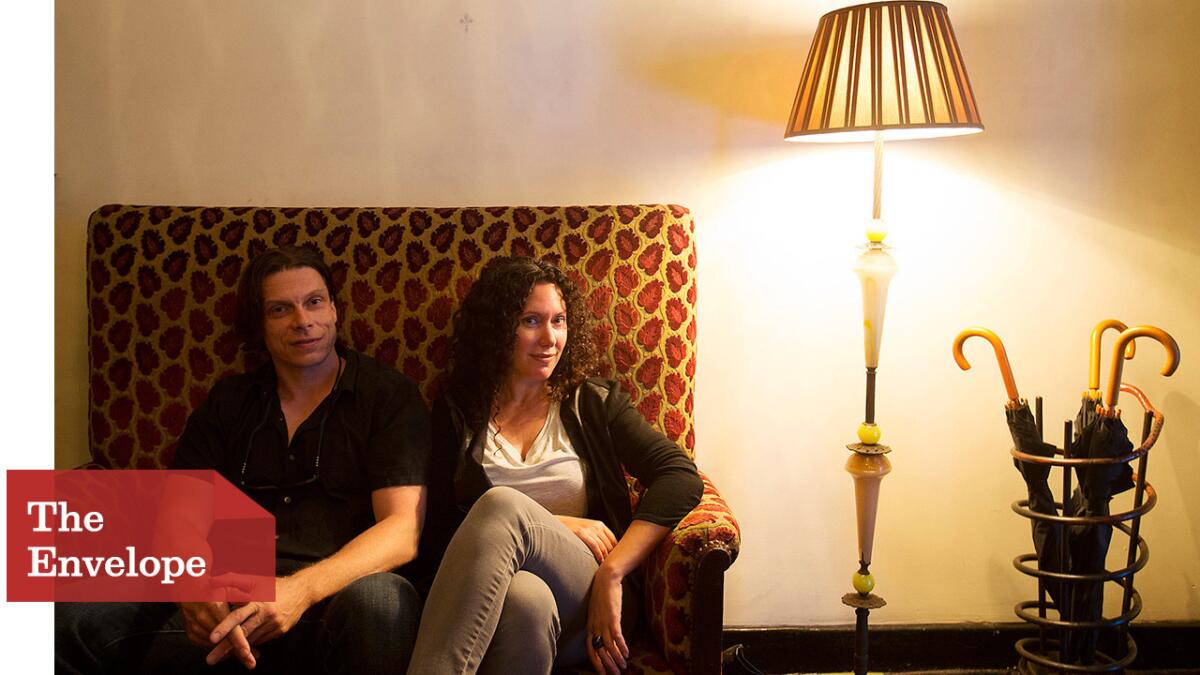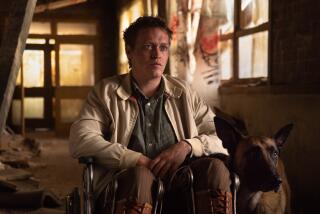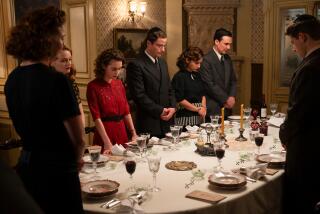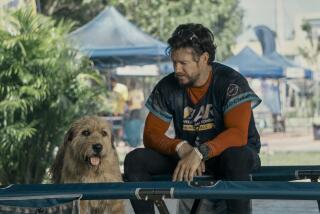The Envelope: Filmmakers turn John Wojtowicz’s crazy tales into ‘The Dog’

It was 2006, and documentarians Allison Berg and Frank Keraudren had just seen their main character succumb to cancer.
After spending four years visiting a dingy New York apartment to hear John Wojtowicz — the real-life subject of Sidney Lumet’s 1975 classic, “Dog Day Afternoon” — spin yarns about his fantastical life, the filmmakers weren’t sure their movie would ever see the light of day.
“We didn’t have a lot of funding; we had a lot of time,” Keraudren said.
Not only were Berg and Keraudren dealing with the financing travails familiar to any independent filmmaker, they were now grappling with the loss of Wojtowicz, who earned the nickname the Dog while in prison for robbing a bank to pay for his partner’s sex-reassignment surgery. Wojtowicz lived with his mother, who was part of the interviews and died just nine months after her son.
“We were really close with both of them,” Berg said, noting that they spent nearly every day with Wojtowicz and his mother toward the end of their lives. “We had a real-life experience in addition to making this film, emotionally dealing with what that was like. You’re not going to dive into the edit right after you’ve just watched two people die. But also we were worried. It wasn’t so much a question of ‘Do we want to go forward?’ as ‘Can we go forward?’ because we hadn’t filmed all the other people you see in the film.”
The couple turned to crowd-funding to raise the money to finish the film, which had been largely financed with their credit cards to that point. No matter where the story took them, they were adamant about focusing on the colorful parts of Wojtowicz’s life, despite what some of the later footage might reveal about his decline.
“At some point we realized we didn’t want to make a film about somebody suffering from cancer,” Keraudren said. “We filmed a lot of that because that was what was happening, but we decided the stronger story was not that.”
Wojtowicz’s story is an antiheroic tale of a self-professed “pervert” whose egotistical quest for love takes him from prison to the fringes of the gay-rights movement to the edge of reality stardom — all without ever really fitting into any of those categories. He struggles to find a job because he’s an ex-con; he’s too sexually adventurous to be embraced by gay activists; he’s too early to capitalize on today’s reality-star culture. He tells his tale in the resulting film as the ultimate unreliable narrator, a quality that comes out in tantalizing ways through archival footage and interviews with his family and friends.
“Everything he did was really what he wanted and what he believed in. He really didn’t care what everybody else thought,” Berg says.
Initially, Berg and Keraudren sought out Wojtowicz after rewatching Lumet’s film and learning that its subject lived a 20-minute walk away from them. Though Wojtowicz appears eager to talk in the film, it took time to pull out all of the threads of his life. “He was somebody who loved to talk about himself and very much enjoyed having an audience,” Keraudren said. But “for us to go deeper than the surface story of bank robbery, we had to get to know him a lot better. He was actually very private, in some ways, about the rest of his life. What was interesting was that a lot of his crazy stories would turn out to be true, and we spent a lot of time trying to verify them with other people.”
Because “The Dog” took almost a decade to make it to the big screen, the filmmakers had joked that it’s “the accidental ‘Boyhood,’” a reference to Richard Linklater’s feature film intentionally shot over a dozen years. After devoting so much time to researching Wojtowicz’s larger-than-life story, Berg and Keraudren found themselves scrambling to finish “The Dog” in time for last year’s Toronto International Film Festival.
The good news? Drafthouse Films picked up the film for distribution at the festival. The bad? By that point, the filmmakers were out of money and had to go back to New York.
“We left Toronto too early,” Berg said. “The second we landed at Newark airport, our sales agent called us and says, ‘Everything’s happening now. You should be here for meetings.’ [But] our credit cards were maxed, so it was a miracle we even got there.”
More to Read
From the Oscars to the Emmys.
Get the Envelope newsletter for exclusive awards season coverage, behind-the-scenes stories from the Envelope podcast and columnist Glenn Whipp’s must-read analysis.
You may occasionally receive promotional content from the Los Angeles Times.






